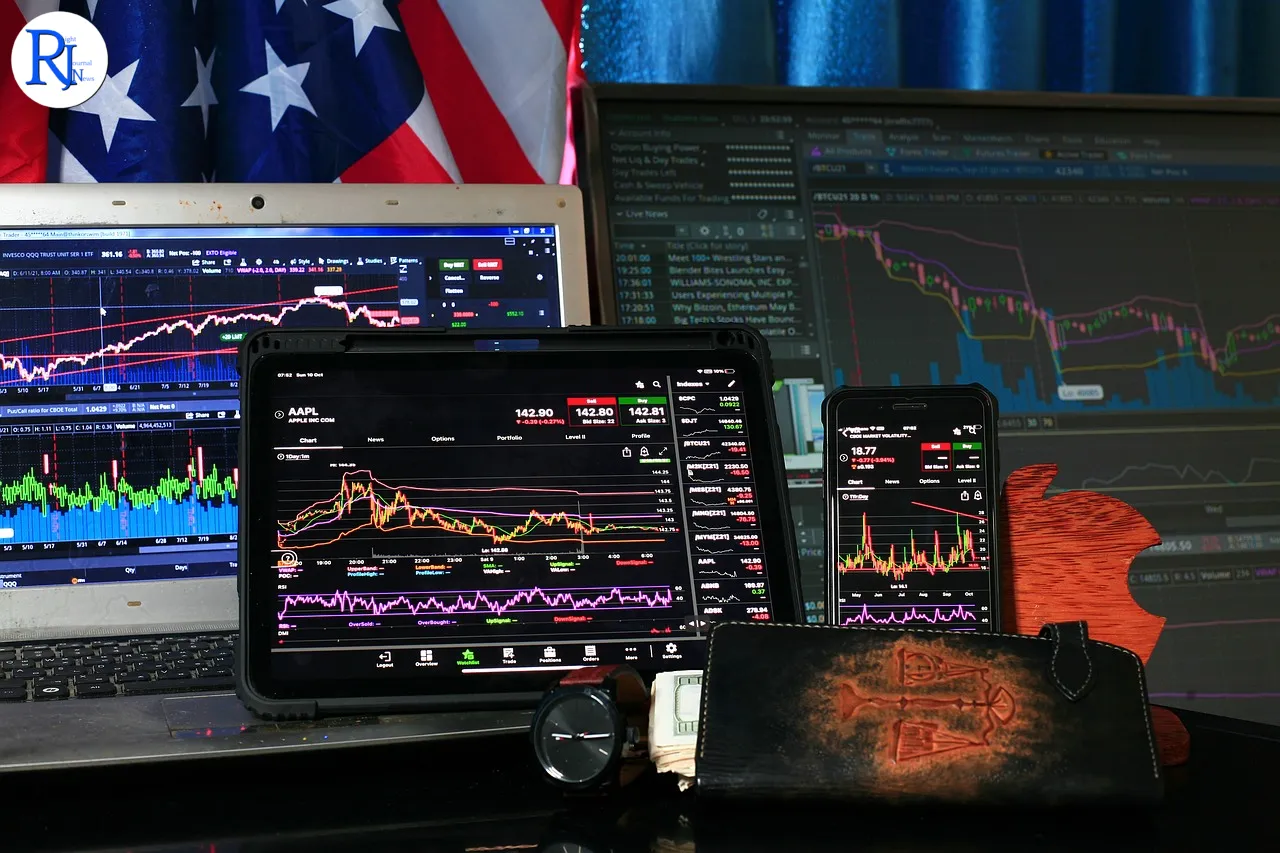Donald Trump has pointed fingers at President Joe Biden for the recent downturn in the United States economy, which has seen a contraction in the first quarter of his second presidential term. Trump, known for his active presence on social media, took to his platform, Truth Social, to express his views. He insisted that the economic challenges were inherited from the Biden administration, downplaying the effects of his own tariff policies.
The former president argued that the current economic situation is “Biden’s Stock Market, not Trump’s,” suggesting that the groundwork laid during his first term was sound. Trump emphasised that the introduction of tariffs, which have been a hallmark of his economic strategy, would eventually lead to a boom, urging Americans to “be patient.”

Economic Contraction Sparks Debate
The contraction in the US economy during the first quarter of 2025 has ignited a heated debate over the causes and potential solutions. This downturn marks a challenging start to Trump’s second term, with analysts and economists weighing in on the factors at play.
Experts agree that the economic landscape is complex, with multiple variables influencing growth. Trump’s tariffs, aimed at boosting domestic manufacturing and reducing trade deficits, have been met with mixed reactions. Critics argue that these tariffs could increase costs for American consumers and businesses, potentially stifling economic growth. However, Trump maintains that they will eventually lead to increased investment and job creation within the United States.
Tariffs: A Double-Edged Sword?
Trump’s economic policies have often centred around protectionism, with tariffs playing a significant role. While these measures are designed to protect American industries from foreign competition, they also carry the risk of retaliatory tariffs from other countries. This could lead to increased prices for imported goods and potential trade wars.
Economists have expressed concerns about the potential negative impact of tariffs on the economy. According to a report by the Peterson Institute for International Economics, tariffs could lead to higher consumer prices and reduced purchasing power. This, in turn, may dampen consumer spending, which is a crucial driver of economic growth in the US.
Blame Game: Trump vs. Biden
Trump’s attempt to shift blame to Biden is not unexpected, given the political landscape. The former president has frequently criticised Biden’s economic policies, accusing him of leaving behind “bad numbers.” However, the Biden administration has defended its record, highlighting efforts to stabilise the economy during the COVID-19 pandemic and implement policies aimed at long-term growth.
The political rivalry between Trump and Biden has added a layer of complexity to the economic discourse. Both leaders have differing views on how to manage the economy, with Trump focusing on tariffs and deregulation, while Biden has prioritised infrastructure investment and social programmes.
Interest Rates and Federal Reserve Criticism
In addition to blaming Biden, Trump has also taken aim at Federal Reserve Chair Jerome Powell over interest rates. Trump has often expressed dissatisfaction with the Fed’s monetary policy, advocating for lower interest rates to stimulate economic growth. He claims to have a “superior understanding” of interest rates compared to Powell.
The Federal Reserve, however, operates independently and bases its decisions on economic data and analysis. Powell has emphasised the importance of maintaining a balanced approach to avoid inflation while supporting growth. The Fed’s actions, including rate adjustments, are aimed at achieving its dual mandate of maximum employment and stable prices.
Looking Ahead: Economic Prospects
As the US navigates this period of economic uncertainty, the focus remains on finding solutions that will foster growth and stability. The interplay between tariffs, interest rates, and broader economic policies will continue to shape the trajectory of the American economy.
Trump’s assertion that the economy will “boom” with the implementation of tariffs is yet to be realised. Analysts suggest that while tariffs may provide some benefits to domestic industries, their broader impact on the economy needs careful consideration.
The coming months will be critical in determining the effectiveness of Trump’s economic strategies and their implications for the US and global markets. As political and economic leaders debate the best path forward, the American public remains hopeful for a return to robust economic growth.
In summary, the blame game between Trump and Biden underscores the complexity of managing a dynamic and interconnected economy. While political rhetoric may dominate headlines, the underlying economic challenges require thoughtful analysis and strategic decision-making to ensure a prosperous future for the United States.

